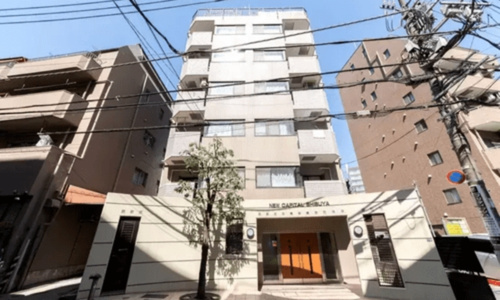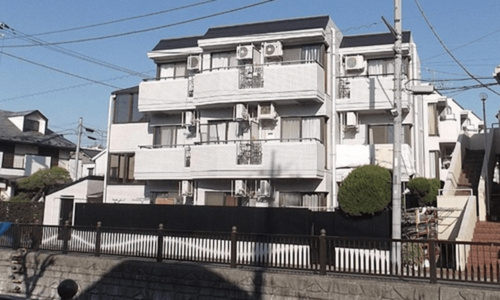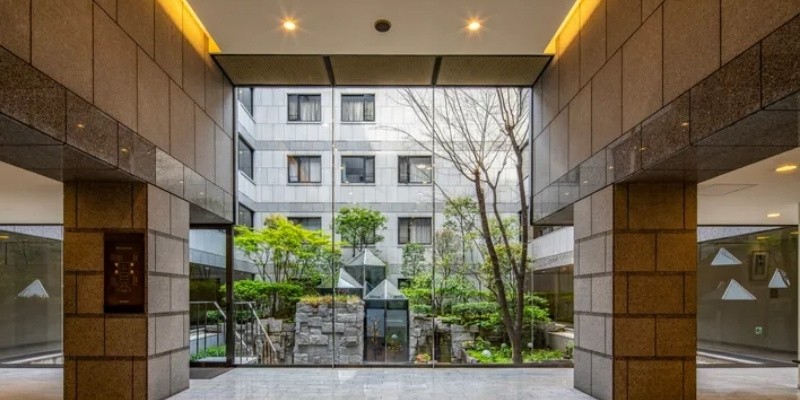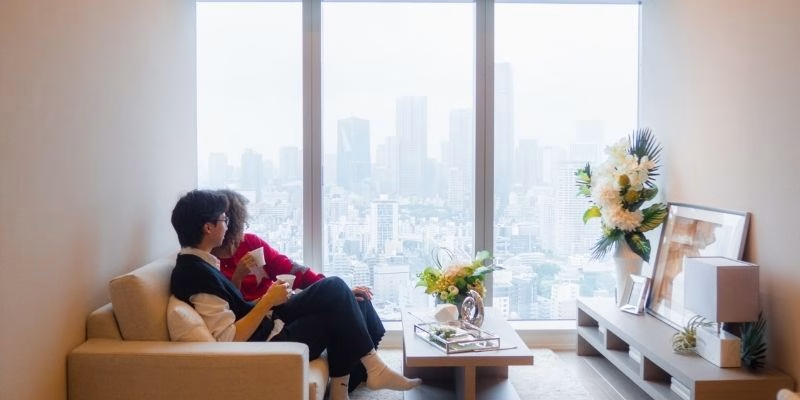Apartments for sale in Tokyo, Japan are ideal for living or investing. From central condos to suburban homes, the market offers variety, stability, and strong demand. With no ownership restrictions for foreigners and a clear legal process, buying property in Tokyo is both secure and rewarding. It’s a smart way to enjoy urban life while gaining long-term value in one of Asia’s most dynamic cities.
Why Buy an Apartment in Tokyo, Japan?
Tokyo offers a unique balance between high-tech convenience and cultural depth. For many, buying an apartment here isn’t just about a place to live; it’s about securing a future in one of the most organized, safe, and globally connected cities.
- Reliable rise in property value over time
- Foreigners are fully allowed to own property in Japan
- High demand for rentals in central areas
- Modern facilities and consistently managed public utilities
Whether you’re relocating, investing, or planning retirement, Tokyo provides an attractive setting for all.
Tokyo Property Trends and Market Insights
As we move through 2025, Tokyo’s property market continues to show resilience and consistency. Newly built apartments are entering the market at more accessible price points than in recent years, providing fresh opportunities for a wider range of buyers. Meanwhile, interest in secondhand units is gaining momentum, particularly in neighborhoods with convenient transport links and solid infrastructure. The city’s blend of economic stability, modern amenities, and high quality of life keeps drawing attention from overseas investors. While central wards still command premium prices, surrounding areas are becoming increasingly attractive, offering more reasonable options without sacrificing comfort or connectivity.

Tokyo Property Trends 2025: Resilient, Growing, and Accessible
Where to Find Apartments for Sale in Japan’s Capital
Finding the right apartment in Tokyo starts with knowing where to begin your search. Local websites like Suumo and Homes.co.jp feature a wide variety of listings, catering to everything from compact studios to spacious family units. For those unfamiliar with Japanese, platforms such as RealEstate.co.jp are especially helpful, offering English-language support and simplified navigation. However, nothing beats the guidance of a knowledgeable real estate agent, particularly when it comes to handling contracts and understanding legal procedures. Agencies like Arealty specialize in supporting international clients, providing multilingual assistance and personalized recommendations to ensure a smooth and stress-free experience.

Tokyo Apartment Search Made Easy for Expats
Searching for Wallet-Friendly Housing?
If your budget is tight, Tokyo still has options:
- Look into apartment-style housing: these simple, two-story buildings, often called apartments, are more affordable than modern condominiums. They’re ideal for singles or couples looking for basic, functional living spaces without the extra cost of amenities.
- Browse listings in suburban areas along the Chuo or Keio lines: Suburban neighborhoods on these major train routes offer better prices while still maintaining reasonable commute times to central Tokyo. You’ll often find more space and a quieter environment.
- Consider older properties that can be renovated: Pre-owned apartments or houses may need some updates, but the total cost of purchase plus renovation is often lower than buying a brand-new unit. This option also gives you flexibility in customizing your home.
- Keep an eye on lesser-known districts: Some overlooked areas in Tokyo are beginning to attract more attention due to redevelopment and improved infrastructure. These districts often hide great deals with strong potential for long-term value.
Types of Japanese Apartments Available for Purchase
The variety of residential layouts in Japan might surprise newcomers:
- Mansions refer to concrete apartment buildings with better insulation and amenities.
- Apato units are lighter constructions, often made of wood or lightweight steel, and tend to be cheaper.
- Room configurations like 1K, 1LDK, or 2LDK describe the number of rooms and the presence of kitchen and living spaces.
Knowing what fits your lifestyle, whether it’s a minimalist studio or a family-sized unit, will narrow your search efficiently.
How to Buy Property in Tokyo as a Foreigner
For foreigners looking to own a home in Tokyo, the good news is that Japan allows non-citizens to purchase real estate without any legal restrictions. That said, the process involves multiple steps, and working with professionals familiar with the local system can make all the difference.
Everything typically begins with finding a trustworthy real estate agent, especially one who speaks your language and understands the unique needs of international clients. They’ll help you identify properties that suit your goals and guide you through each stage of the transaction.
Once you’ve found a place that feels right, the next move is to submit an offer, often in the form of a written application or letter of intent. This kicks off the negotiation phase with the seller. If both sides agree, a formal contract is signed, and you’ll pay a deposit, usually between 5% and 10% of the agreed price.
Before sealing the deal, it’s crucial to do your homework: check the building’s condition, verify legal boundaries, and confirm there are no hidden issues tied to the property. For those needing financing, options are somewhat limited. While some Japanese banks provide home loans to foreign residents with long-term visas, securing funding can be tough for those living abroad. In that case, arranging financing through a bank in your home country may be necessary.
To complete the purchase, a legal specialist, known in Japan as a judicial scrivener, handles the final paperwork and ensures that the ownership transfer is properly registered. Once everything is signed and processed, you officially become the new owner.
Please note that purchasing property in Japan doesn’t automatically grant residency or a visa. You’ll also need to plan for additional expenses, including taxes, administrative fees, and agent commissions. Since most documents are in Japanese, having someone bilingual assist with translation and interpretation is highly recommended. With the right support and a clear understanding of the steps involved, owning property in Tokyo as a foreigner is not only possible, it’s more accessible than many people think.

Foreign Ownership of Property in Tokyo Made Simple
Japanese Apartments for Sale: What Makes Them Unique?
Japanese apartments stand out for their well-thought-out design and subtle attention to everyday living. Despite limited floor space, the layout is often clever, with sliding partitions, hidden storage, and multi-use areas that help make each room adaptable and efficient. Many buildings are reinforced to endure earthquakes, with safety measures that meet strict national standards. A strong sense of community is reflected in shared expectations around noise control, cleanliness, and respectful use of common areas. Modern conveniences like automated parcel lockers, keypad entry, and bike storage are frequently included, making daily life more seamless.
More than just a place to stay, these homes reflect a mindset shaped by balance and intentionality. Life in a Japanese apartment offers a quiet structure, where comfort is built not on size, but on function, flow, and awareness of the people around you. For many who choose to settle here, the experience goes beyond ownership; it’s an invitation into a lifestyle rooted in mindfulness, simplicity, and quiet respect.

Thoughtful Living in Japanese Apartments
Final Checklist Before Purchasing Your Apartment in Tokyo
Before you close the deal, review this buyer’s checklist:
- Confirm legal title and ownership documents
- Inspect the unit’s condition, plumbing, and electric systems
- Check building age and monthly management fees
- Be aware of area-specific building codes and nearby redevelopment plans
- Calculate all costs (property tax, insurance, maintenance)
Taking these steps helps you avoid costly mistakes and ensures long-term value.
Conclusion
Owning an apartment in Tokyo in 2025 may sound overwhelming at first, but with the right preparation and a bit of local insight, the process is more manageable than you’d think. Whether you’re looking for a sleek new development or a charming older home with character, Tokyo offers a wide range of options to suit different needs and preferences.
And if you find yourself struggling, whether it’s navigating the market, understanding paperwork, or simply choosing between buying and renting, Arealty.jp is here to help. With a knowledgeable team and years of experience supporting international clients, they’ll guide you toward a home that fits your goals and your lifestyle.






Leave a Reply